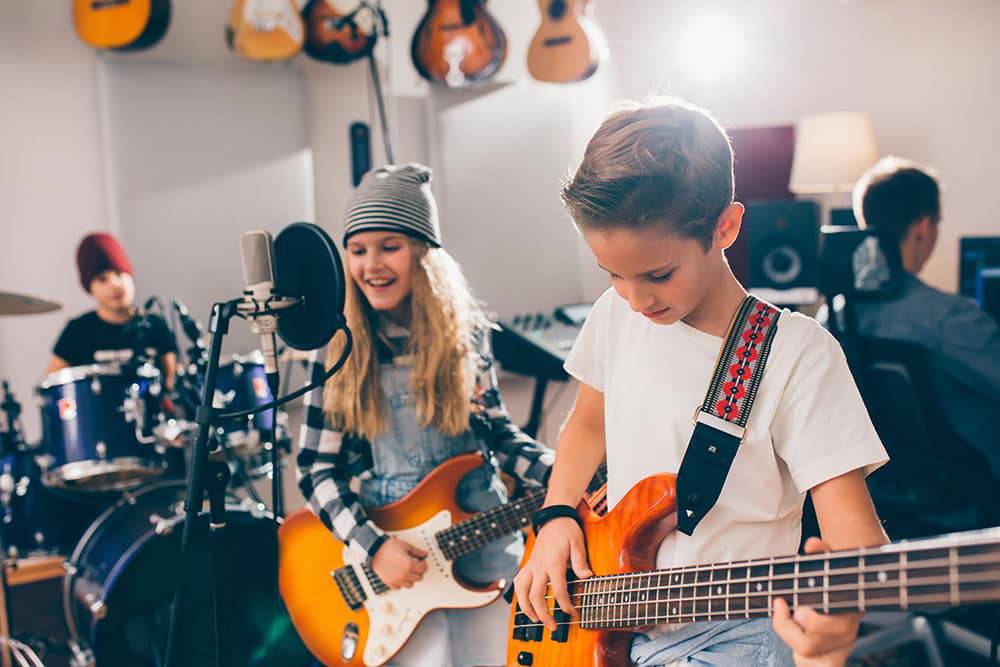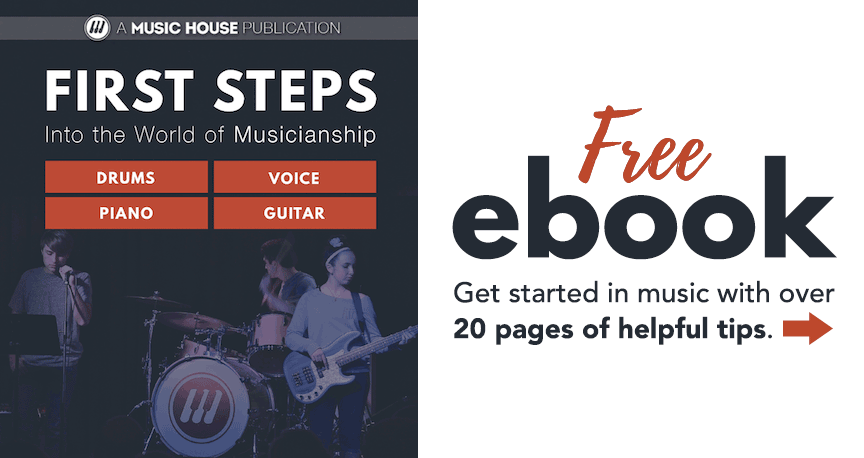5 Reasons Why You Should Consider Playing in a Group

Music is meant to be shared; it is a creative expression meant to be enjoyed by many, fostering bonds, and connecting one individual to another. So, it should not come as a surprise that taking music lessons and playing in a group offer plenty of benefits to a budding musician.
Furthermore, research has already confirmed that learning music in a group setting allows a person to perfect their technical music skill, instills core values, and nurtures lifelong friendships, enriching a person’s quality of life.
Whether you are a soprano singer, a beginner pianist, a kid, or a mother of two, it is never too late to start pursuing your passion for music by enrolling in classes.
Look for the best music school or instructor and choose the kind of class you prefer. Both private and group courses have their advantages and disadvantages. But if you are leaning toward the former, then here are some beneficial reasons you should consider playing in a group.
1. Promotes Teamwork
Enrolling in a music class allows you to learn specific skills and instrumental abilities fundamental to achieving your musical goals in the future. You will learn music theory, read notes, rhythm, discover techniques to master your instrument, interpret music, and other important things to perfect your craft.
But besides the technical skills, students who play in an ensemblealso acquire beneficial values and principles that they can apply in all aspects of their life. One such value is learning the importance of teamwork and how to be a team player.
Here’s how group classes promote teamwork in students:
- It helps students develop a sense of team spirit and recognize each member’s importance in achieving the team’s overall goal.
- Improves ability to cooperate with others and promotes camaraderie.
- Teaches the importance of listening and following instructions.
- Enhances their leadership skills by teaching them when to step up and when to provide support.
- It improves their ability to communicate with others and solve a problem through team effort.
Additionally, taking music lessons in a group setting can be more positively influential, particularly on a growing child or teen.
2. Builds Motivation
It is much easier to get up early in the morning and work out in the gym if you have a gym buddy to do it with, right? Well, the same goes for attending music classes.
Students, especially kids and teens, have more enthusiasm and motivation to attend their music class, knowing their friends are there. Once they develop friendships and become close with their classmates, classes would feel more like a get-together with fellow music enthusiasts.
Furthermore, playing in an ensemble allows you or your child to improve your social skills. The best part is getting the chance to build a strong friendship with others that can last a lifetime.
Also, a group setting fosters a healthy competition among students, which in itself is a motivating factor to do better in their craft. Plus, it keeps students engaged and more motivated to continue their musical education further.
There’s also a possibility that they will take it to the next step in the future, forming a band or joining an orchestra group that they had worked with within their music class.
3. Reduces Performance and Learning Anxiety
There’s a certain peace and comfort that comes in knowing that you are not the only beginner in a class. It reduces learning anxiety and takes away the pressure of performing better and mastering your skill quickly.
Moreover, a student will feel safer in a group, thus allowing him/her to avoid obsessing over not making a mistakeand instead focus on executing the techniques well and enjoying the process. Some of the important learning and performance lessons students can take away from a group set-up includes:
- Overcoming fear of failure, stage fright, insecurity, and shyness.
- Singing or playing an instrument with their band allows students to develop the confidence they will need in performing in front of a large audience.
- Building self-confidence and self-esteem.
- Group music lessons reduce pressure and redirect a person's focus towards the fun and enjoyment of learning.

4. Allows Versatility
Playing in an ensemble exposes a student to different kinds of music, skills, and techniques that they can adapt to perform better. For example, a music class will allow you to play in a jazz group, rock band, or practice a bluegrass musical piece.
Learning and having the experience of playing different styles of music makes you a versatile musician, giving you an edge in the future. Plus, seeing others play other instruments might spark you or your child’s curiosity in learning it.
In addition, taking group music classes opens you up to the possibility of a musical collaboration as you pursue your talent professionally.
5. Preparation for the Real World
To sum it all up, learning music in a group setting prepares you for the real world: the professional life of musicians in the music industry.
Successful music performers never work alone. They interact with many people that, in a way, allows them to be successful in their craft. For instance, professional musicians often work with musical directors, composers, instrumentalists, conductors, and many more in the industry.
Students can apply the great people skills they learned in their music lessons in the real world, which allows them to create strong working relationships.
Finally, group classes allow budding musicians to be a part of something important and greater than themselves. As a result, this teaches them to work hard towards the group’s common goal. After all, personal success can only go so far compared to well-deserved team success.
Conclusion
Group and private music lessons both have their pros and cons. Even if you go with a private one, you should still consider enrolling and playing in a group to reinforce the learning you acquired during your private sessions. Plus, nothing beats the rewarding feeling that comes with seeing how your skills complement a music group.

